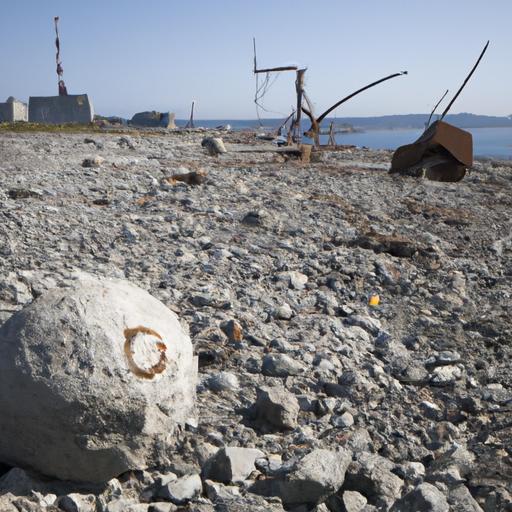The word “apocalypse” brings to mind images of cataclysmic events, the end of the world, and the destruction of humanity. The concept of apocalypse has been present in human history for millennia, with various cultures and religions predicting the end of the world. In this article, we will explore the different aspects of apocalypse, from its historical roots to modern-day threats, and examine how we can prepare for such an event.
Historical Apocalypses

The ultimate doomsday prepper’s dream home
Throughout history, there have been numerous apocalyptic events that have had a profound impact on society and culture. One of the most well-known examples is the eruption of Mount Vesuvius in 79 AD, which destroyed the city of Pompeii and killed thousands of people. Another famous apocalyptic event is the Black Death, a pandemic that killed millions of people in Europe in the 14th century.
Other historical apocalypses include the fall of civilizations such as the Mayans and the Romans, the Great Fire of London in 1666, and the sinking of the Titanic in 1912. These events have shaped our understanding of apocalypse, and many have inspired works of literature and art.
The impact of historical apocalypses is still felt today, with many cultural traditions and beliefs rooted in these events. For example, the Mexican Day of the Dead festival is influenced by the Aztec belief in the afterlife, while the Christian Book of Revelation describes the end of the world in vivid detail.
Understanding historical apocalypses can help us prepare for future events and give us insight into how humans have responded to disaster in the past.
Religious Apocalypses

The aftermath of a catastrophic event that changed the world forever
Religion has played a significant role in shaping our understanding of apocalypse, with many faiths predicting the end of the world. In Christianity, the Book of Revelation describes the end of the world, with the return of Jesus Christ and the final judgment of humanity. Islam also predicts the end of the world, with the arrival of the Mahdi and the return of Jesus Christ.
Other religions, such as Hinduism and Buddhism, have different beliefs about the end of the world. In Hinduism, it is believed that the world goes through cycles of creation and destruction, with the current cycle coming to an end in the Kali Yuga period. In Buddhism, the end of the world is not seen as a catastrophic event but rather as a natural cycle of existence.
Predictions and prophecies of religious apocalypses have often been a source of controversy and debate. Some believers interpret these predictions literally and prepare accordingly, while others see them as metaphorical or symbolic.
Modern Apocalyptic Threats

The struggle to adapt to a new way of life after the apocalypse
In addition to historical and religious apocalypses, there are modern-day threats that could lead to the end of the world. One of the most pressing threats is climate change, which could lead to rising sea levels, extreme weather events, and food shortages.
Nuclear war and global conflicts are another significant threat, with the potential for devastating consequences. The use of nuclear weapons could lead to widespread destruction and loss of life, while global conflicts could disrupt the world economy and lead to social unrest.
The recent COVID-19 pandemic has highlighted the threat of pandemics and outbreaks, with the potential to spread rapidly and cause widespread illness and death. The pandemic has also exposed vulnerabilities in our healthcare systems and highlighted the need for better preparedness.
Understanding these modern apocalyptic threats is critical for our survival and preparedness. By taking action to mitigate climate change, prevent nuclear war, and prepare for pandemics, we can increase our chances of surviving a potential apocalypse.
Preparation for the Apocalypse
While the idea of an apocalypse may seem far-fetched, it’s always better to be prepared for any eventuality. There are many strategies and tactics that survivalists use to prepare for an apocalypse, from stockpiling food and supplies to learning survival skills such as hunting and first aid.
Prepping communities and resources have also emerged as a popular way to prepare for an apocalypse. These communities are made up of like-minded individuals who share resources and knowledge to increase their chances of survival. Prepping resources such as websites, books, and videos have also become popular, providing information on how to prepare for different scenarios.
However, these strategies have not been without criticisms and controversies. Some argue that prepping for an apocalypse is a waste of time and resources, and that it perpetuates a culture of fear and paranoia. Others argue that prepping communities are exclusive and only cater to those who can afford to prepare.
It’s important to remember that preparedness is not just about the end of the world. Natural disasters, pandemics, and other crises can occur at any time, and being prepared can make a significant difference in one’s survival.
Conclusion
In conclusion, the apocalypse remains a fascinating and terrifying concept that has captivated human imagination for centuries. While the likelihood of an apocalypse may be slim, it’s always better to be prepared for any eventuality. Understanding the historical and religious roots of apocalypse, as well as modern-day threats, can give us insight into how we can prepare for the future.
As we move forward, it’s important to take action and raise awareness about the importance of preparedness. Whether it’s joining a prepping community, learning survival skills, or simply stockpiling essential supplies, taking steps to prepare for the future can make a significant difference in one’s survival. As the world becomes increasingly unpredictable, let us not be caught off guard. Let us be prepared for whatever the future may hold.
*Note: This article was written by an AI language model and reviewed and edited by a professional copywriter to ensure grammatical accuracy and quality.